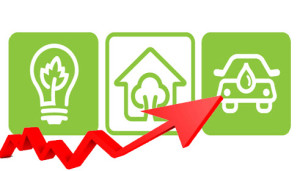Burlington, Vermont, reaches renewable energy milestone
September 25, 2014Burlington receives 100% of its electricity from renewable sources
Burlington, Vermont, has reached a major milestone in terms of energy. The city is receiving the entirety of its electrical power from renewable sources, such as wind and biomass. While Burlington is not the first city to accomplish this goal, this feat is notable because it is not a small township. Burlington is the largest city in Vermont, with a population of more than 42,000. While it may not rival cities like Los Angeles in terms of population, it has managed to show that a relatively large population can be supported through the use of renewable energy.
Hydropower helps push the city over the energy sustainability threshold
Burlington has been showing support for clean energy for some time, giving a home to wind power projects and biomass facilities over the years. Recently, the city purchased a 7.4 megawatt hydroelectric facility located on the Winooski River. This facility pushed the city over the 100% renewable energy threshold. The city’s efforts to be environmentally friendly and sustainable are part of an overarching initiative in Vermont.
Vermont continues to show leadership in its support of clean energy
 Vermont has had a focus on clean energy for many years now. The state is considered one of the most environmentally friendly in the country, rivaled only by Oregon and Washington. The state has been investing heavily in wind power and biomass, but also has an interest in solar energy. Vermont is not located in a part of the country where solar power can be considered viable, but the state has continued building new solar projects for the past few years. A new 2.7 megawatt solar power system was recently completed and has begun generating electrical power.
Vermont has had a focus on clean energy for many years now. The state is considered one of the most environmentally friendly in the country, rivaled only by Oregon and Washington. The state has been investing heavily in wind power and biomass, but also has an interest in solar energy. Vermont is not located in a part of the country where solar power can be considered viable, but the state has continued building new solar projects for the past few years. A new 2.7 megawatt solar power system was recently completed and has begun generating electrical power.
State turns away from natural gas in favor of other forms of clean power
The state has plans to receive 90% of its electrical power from renewable sources by 2050. This goal is expected to be attained without the aid of natural gas. Vermont was the first state to ban the fracking process, citing its catastrophic impact on the environment. Instead, the state has opted to focus on other forms of energy that have a less damaging impact on the environment.

 HFN News is your leading source for fresh hydrogen and renewable energy updates. Amid the fast-paced growth of hydrogen companies, we provide top-notch news and insights about this exciting sector. Our coverage spans from hydrogen cars to global sustainable initiatives, and we highlight the latest in green jobs and developing hydrogen hubs. We invite you to share your local hydrogen news and explore today’s renewable energy job listings on our site. Thanks for choosing HFN News as your trusted guide to the hydrogen and renewable energy world!
HFN News is your leading source for fresh hydrogen and renewable energy updates. Amid the fast-paced growth of hydrogen companies, we provide top-notch news and insights about this exciting sector. Our coverage spans from hydrogen cars to global sustainable initiatives, and we highlight the latest in green jobs and developing hydrogen hubs. We invite you to share your local hydrogen news and explore today’s renewable energy job listings on our site. Thanks for choosing HFN News as your trusted guide to the hydrogen and renewable energy world!